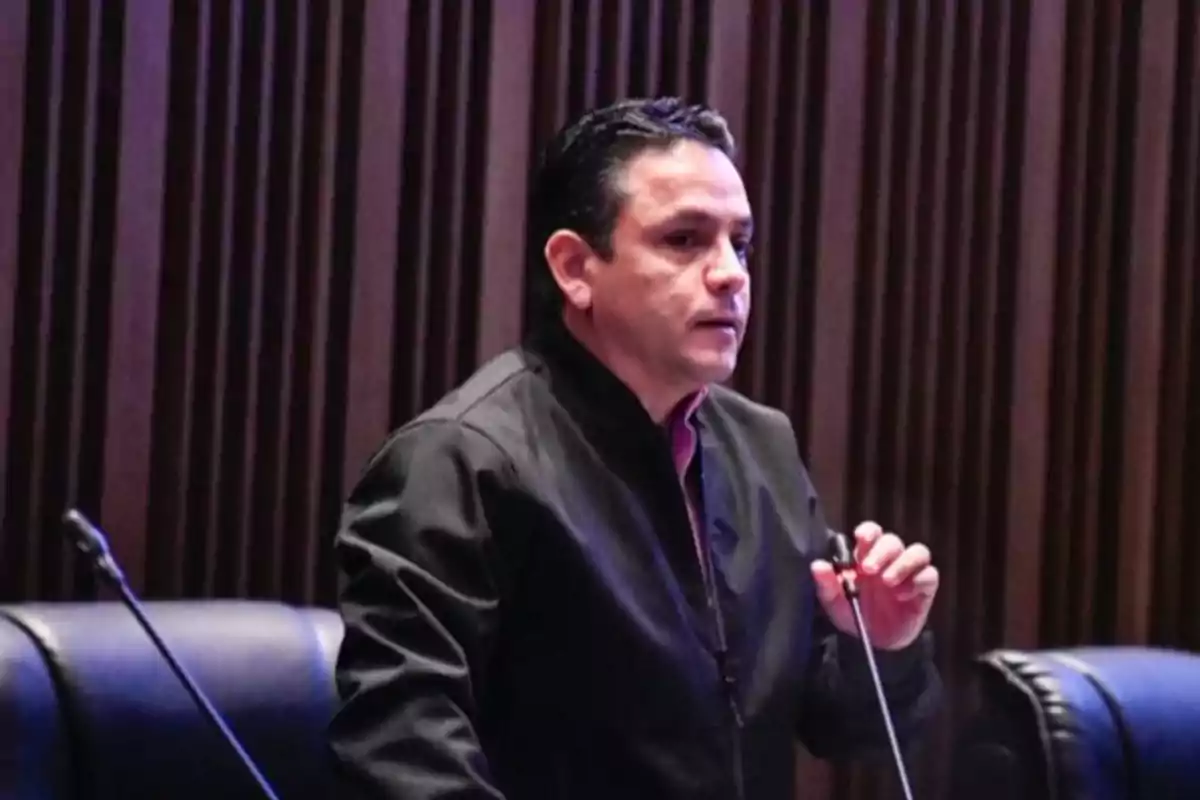
Henry Montero demanded clarification on the destination of resources for hydrocarbon exploration.
The senator denounced that Masismo never conducted new explorations and therefore must clarify the destination of the resources
Senator Henry Montero, head of the Creemos caucus, requested explanations about the destination of 5.9 billion bolivianos. The resources correspond to the Hydrocarbon Exploration and Exploitation Investment Promotion Fund (FPIEEH). According to Senate reports, the money comes from the Direct Hydrocarbon Tax (IDH).
The fund was created by law to encourage new explorations, but the legislator claims that this objective was not met. Montero stated that the MAS governments did not carry out significant explorations, accused Evo Morales and Luis Arce of causing an economic collapse in YPFB. He claimed that the country's energy potential was exhausted without replenishing reserves, as he said, they "killed the goose that laid the golden eggs."
According to Law 767, the FPIEEH is financed with 12% of the IDH before its distribution. This money was supposed to be invested in projects to search for new deposits and also to finance drilling works and technical studies. By March 2024, the fund had accumulated around 6 billion bolivianos, Montero claims there is no evidence of projects executed with those amounts.
During his intervention in the Senate, Montero pointed out that the country ceased to be an energy power. He recalled that in 2014 Bolivia exported gas for 6.5 billion dollars. Currently, that figure has fallen to 1.5 billion.
YPFB now only transports Argentine gas to Brazil, this demonstrates the failure of the national hydrocarbon policy. According to regime authorities, the transportation of Argentine gas generates 200 million dollars a year for Bolivia. The president of YPFB, Armin Dorgathen, assured that the operation doesn't affect internal production.
He also explained that idle pipelines are used to generate additional income. However, analysts consider this role as a "consolation prize." Bolivia only rents its infrastructure without generating value with its own production.
Economist Gonzalo Chávez harshly criticized this situation, saying that Bolivia went from being a key player to a mere intermediary. The operation favors competitors like Argentina and Brazil. Chávez questioned that the country no longer takes advantage of its infrastructure for its own benefit and indicated that it is a consequence of years without investment in exploration.
Does masismo have no projects for hydrocarbon exploration?

Senator Montero warned that the energy course must be changed, indicating that the lack of new reserves limits exports and generates dependency. He recalled that Bolivia imports subsidized fuels with high fiscal costs. Without sufficient national production, the current model is unsustainable, he calls for political responsibility and accountability.
Additionally, Montero denounced that MAS blocked initiatives in the Legislature and mentioned the case of a Japanese loan for 100 million dollars. This financing was supposed to be allocated to the general elections, but internal divisions in the ruling party prevented its approval. The opposition had supported the proposal with the aim of guaranteeing the electoral process.
The legislator also demanded transparency in the credits already approved, asserts that MAS ministers did not explain how those resources are used. He believes there is opacity in the government's economic administration. He warned that the elections must be held without excuses, they have to take place on August 17 of this year.
Meanwhile, in Argentina, they are analyzing routes to export their gas to Brazil, Bolivia is a viable option due to its network of gas pipelines. However, the country's political instability raises doubts. Some sectors propose alternative routes through Uruguay.
In this context, YPFB claims to be ready to transport up to 10 million cubic meters per day. It has been operating interconnected with Argentina and Brazil for more than two decades, the Bolivian state company seeks to make the most of its infrastructure. But without new reserves, the model continues to depend on other countries, experts argue that the country has lost its strategic role.
Montero considers that MAS's inaction is the root of the problem. The lack of exploration projects prevents recovering the sector's potential and demanded a formal investigation from the Legislative Assembly. "Sooner or later they will have to be held accountable," he concluded.
The decline in gas production worries regional partners, today Argentina and Brazil only see Bolivia as a transit point. Political decisions in recent years have weakened the country's energy leadership. Analysts like Álvaro Ríos believe there is still time to reverse the situation, but that requires investment, stability, and real political will.
More posts: